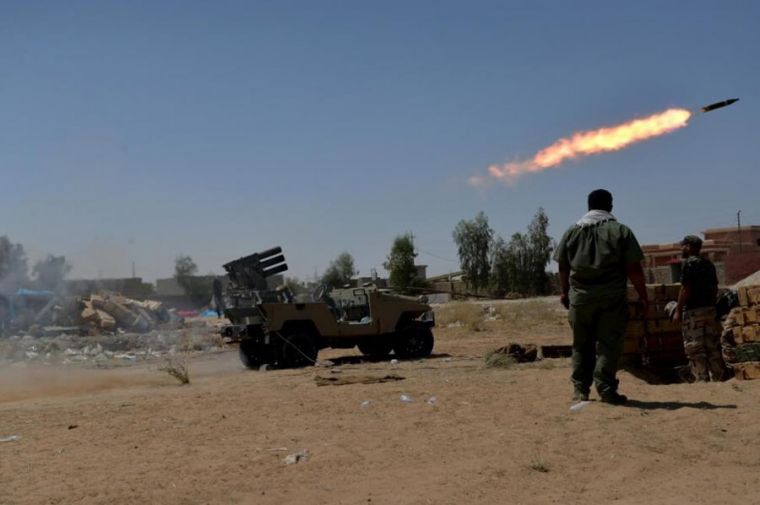'Wholesale defections eroding ISIS forces' in Iraq, U.S. military commanders say

A large number of Islamic State (ISIS) fighters in Iraq have been laying down their weapons and defecting from their group since last month, slowing down the jihadist group and thinning its ranks of militants, according to U.S. intelligence officials.
Army Col. Steve Warren, the top spokesman for the counter-ISIS coalition in Baghdad, said "wholesale defections, sparsely manned checkpoints and elite foreign fighters pressed into mundane duty indicate that the U.S.-led campaign and advances by Kurdish forces are eroding the forces of the ISIS in Iraq,'' USA Today reported.
Army Gen. Lloyd Austin, who oversees U.S. military operations in the Middle East as chief of Central Command, reportedly told troops last week in Iraq that the air campaign is ''inflicting maximum pain on the enemy.''
Citing estimates, Austin said the airstrikes and the ground fights have so far killed 23,000 ISIS fighters, an increase by 3,000 since mid-October.
While the campaign has shown strains on the group's fighting force, Warren believes that evidence of ISIS manpower shortage is largely anecdotal.
Currently, ISIS is still believed to have about 20,000 to 30,000 fighters in Iraq and Syria. They hold the key Iraqi cities of Mosul and Ramadi and large portions of Syria, Austin said.
Michael O'Hanlon, a military expert at the Brookings Institution, also said it is too soon to tell if apparent strain on the group is long-term.
"I view those as provisional signs of progress," said O'Hanlon. "Individual metrics like these can be deceptive, especially given the difficulty of measuring things accurately. I'd tend to agree with Centcom that these anecdotes and snippets of information sound promising, but I just remain a bit more sceptical until we see some more indicators and see what happens when more time passes."
Last week near Kirkuk, 90 ISIS fighters laid down their arms and turned themselves over to Kurdish Peshmerga forces, USA Today said.
The former fighters were believed to be local men who had been coerced into joining the jihadis group and have grown disillusioned with the cause or simply saw a way to quit the fight by turning themselves in, said the report.
In the recent battle between ISIS fighters and the Kurds in Syria that was backed by U.S. airstrikes and advisers, ISIS reportedly was dealt severe blows after a Peshmerga-led attack in northern Iraq two weeks ago seized the village of Sinjar, a supply line for ISIS forces.
Also in the last few days, Iraqi security forces completely surrounded Ramadi, capturing the last bridge jihadi fighters had been using for resupply, sources said. A group of 22 people fled Ramadi after a large force of jihadists landed in the city without a fight.
Another sign of reduced ISIS manpower, said Warren, is shown in the footage from surveillance drones that indicate fewer fighters manning their posts than in previous months. "Islamic State forces have had to call on its better-equipped and trained foreign forces for such mundane duty as manning checkpoints.''
He said ISIS has employed foreign fighters as its "shock troops" to seize territory and as quick-reaction forces to respond to Kurds and other coalition forces.











